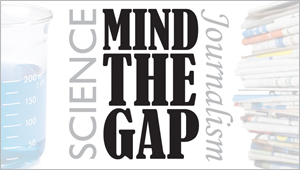Are Fatty Acids the Cure for PMS?
by
 Last week on 30 Rock Liz Lemon (Tina Fey) and her show came under attack for playing into feminine stereotypes. A flashback to several sketches showed the punchline for each relying on PMS, with Jenna (Jane Krakowski) suddenly proclaiming she got her period and turning into a crazed and irrational human being. And then Liz followed suit, screaming at her writers “I just got my period, you’re all fired!” Maybe if she’d taken her fatty acid supplement she wouldn’t have experienced these symptoms, new research shows.
Last week on 30 Rock Liz Lemon (Tina Fey) and her show came under attack for playing into feminine stereotypes. A flashback to several sketches showed the punchline for each relying on PMS, with Jenna (Jane Krakowski) suddenly proclaiming she got her period and turning into a crazed and irrational human being. And then Liz followed suit, screaming at her writers “I just got my period, you’re all fired!” Maybe if she’d taken her fatty acid supplement she wouldn’t have experienced these symptoms, new research shows.
Of course the joke is scientifically flawed, as PMS is a premenstrual condition and appears in affected women approximately 10 days before their period. But the symptoms are true; irritability, depression and abdominal pain define the syndrome.
But what causes these symptoms? The levels of various hormones circulating in the blood stream control the human menstrual cycle. The effects of two of these hormones, estrogen and progesterone, on other hormones have been implicated in causing PMS. For example, progesterone is thought to impact serotonin levels in the brain and therefore affect mood.
In an alternate theory, it has been proposed that women with severe PMS have an increased sensitivity to prolactin, and in rare instances patients have increased circulating levels of this hormone. However in cases where increased sensitivity is to blame, patients have decreased levels of another steroid hormone, prostoglandin E1. This hormone normally dampens the effects of prolactin, therefore when prostoglandin E1 levels are low normal levels of prolactin have increased potency.
Prolactin is a protein-based hormone that acts primarily in the regulation of milk production, but also counteracts the effects of the pleasure-responsive neurotransmitter dopamine. Prostoglandin E1, like all steroid hormones, is derived from fatty acids. It is synthesized in our bodies from gamma-linoleic acid, the precursor for which is found in cow’s milk and evening primrose oil. Such essential fatty acids are critical components of the human diet, as they cannot be synthesized de novo in our cells.
In a Brazilian study published this month in the journal Reproductive Health, the authors monitored a group of women with documented PMS for a period of eight months, during which they received six months of treatment with two different doses of essential fatty acids. A placebo group received mineral oil instead. Over the course of the study, the women were asked to fill out a survey to assess their PMS symptoms. And after three months of treatment there was a clear positive impact on the medicated groups. A placebo effect was observed early in the study, but dissipated as the trial continued.
The authors also measured prolactin levels and found that they remained consistent throughout the study, depending on menstrual phase. In addition cholesterol levels were monitored to ensure no negative impact on the health of the subjects. Again, these levels remained unchanged. Surprisingly prostoglandin E1 levels were not monitored. It is therefore not entirely clear how the therapeutic effect of gamma-linoleic acid is acting. The assumption is that it is increasing the levels of prostoglandin E1 and thus antagonizing the effects of prolactin. Indeed the authors offer no rationale for the observed results of their trial.
The trial reported here was small, and while almost no negative side effects were observed, it is impossible to know what the long term affects of this treatment could be. But until a more rigorous study is completed, it will give hope to the many women who struggle monthly with the sometimes-debilitating symptoms of PMS.
.
Katie Pratt is a graduate student in Molecular Biology at Brown University. She has a passion for science communication, and in an attempt to bring hardcore biology and medicine to everyone, she blogs jargon-free at www.katiephd.com. Follow her escapades in the lab and online on Twitter.
.
.
Be the first one to mind the gap by leaving the missing word as a comment and get your name in the blog along with a sweet new BenchFly mug!
.
UPDATE:
Congratulations to Helen – winner of this Mind the Gap competition!
About the winner: Helen Lynn is a molecular biology technician in the Harris-Holt lab at the University of Cambridge, a tea addict, and a fan of excellent science communication.
.
About the prize: In addition to fame and glory beyond their wildest dreams, winners receive our new hot-off-the-presses large (15 oz) BenchFly mug to help quench their unending thirst for scientific knowledge… or coffee.

.
.


Helen Lynn
wrote on March 2, 2011 at 2:24 pm
Prolactin!
alan@benchfly
wrote on March 2, 2011 at 2:37 pm
We've got a winner!!
cm doran
wrote on March 2, 2011 at 2:33 pm
oxytocin? since prolactin was already taken!
alan@benchfly
wrote on March 2, 2011 at 2:38 pm
You're right- it was prolactin, Helen narrowly beat you to it!
So You Thought Eating Poop Was Bad For You? | BenchFly Blog
wrote on March 16, 2011 at 2:02 am
[…] Are Fatty Acids the Cure for PMS? […]